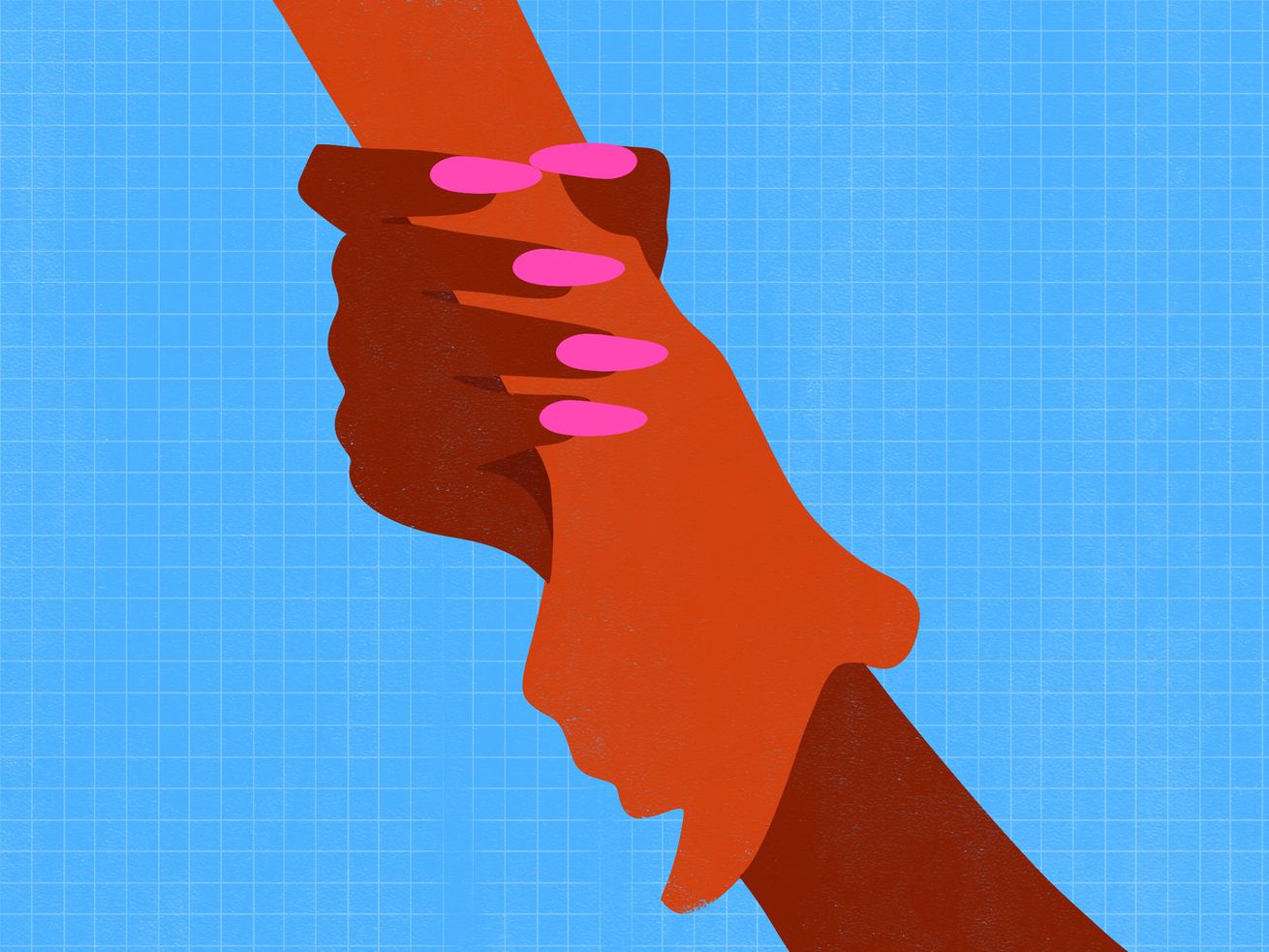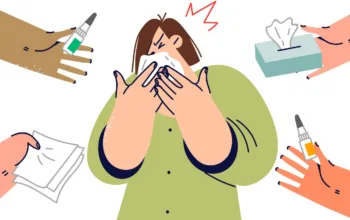How to be there for your people when you’re emotionally out of gas.
In January, Bart Vijendra felt like the world’s worst friend. A few friends came down with Covid-19, another went through a terrible breakup, and they all needed a sympathetic ear.
Vijendra, though, was incredibly burned out. The 25-year-old works in the food industry, and between staffing shortages and long hours, he was exhausted, stretched thin, and felt as though he didn’t have enough energy to be there for his friends.
Life’s demands — long shifts at work, an ongoing pandemic, compounding tragedies, rampant inflation — have put people through the wringer. “We have more to handle — not just work but how we perceive the world, how we see ourselves emotionally, mentally, and physically — than we have the capacity for, so we burn out,” says Nataly Kogan, author of The Awesome Human Project: Break Free From Daily Burnout, Struggle Less, and Thrive More in Work and Life.
Being a good friend on top of everything else can seem like an uphill battle when you’re running on empty. You can’t meaningfully support friends, partners, colleagues, and community members, Kogan says. At the height of his exhaustion, Vijendra says he was unable to celebrate a best friend’s birthday. “She hit me with a text a few days later,” he says, “like, ‘Hey, I didn’t appreciate you didn’t do too much for my birthday.’” (He eventually smoothed things over with the friend.)
Instead of retreating into isolation or continuing to overwork yourself, there are ways to support those who mean the most to you while caring for yourself.
Set boundaries
Rather than ignore the irritability, tiredness, and resentment that comes when we’re emotionally sapped, be open with your community about how you’re feeling, says marriage and family therapist Racine Henry. “I find that people often delay their own feelings by living in conflict with what’s happening to them,” she says. This can be as simple as telling your friends, “I love our friendship, but I haven’t been myself lately and I need to take some time away from others.”
Vijendra and his friends are in the practice of not only telling each other if they need to tap out of heavy talks, but giving their conversation partners space to take a break if needed. Statements like, “I know you’re suffering a lot. Things are hard. If you need to step back, please do. We understand, you can come back whenever you feel ready,” have proven successful, Vijendra says.
Knowing when to set a boundary is crucial, and it comes with some self-reflection. Knowing that helping your parents with seasonal cleaning drains your batteries, make an effort to clear your calendar afterward to recharge rather than extend yourself with further commitments (and have a mini meltdown later). “Give yourself what you need before you need it,” Henry says, “meaning before you hit that wall, before you are burned out, before you’re unable to function, you want to take some breaks. Give yourself rest, embrace doing less or saying no as a part of your normal way of being. That way, you’re deciding when to break from work or when you step back from friendships versus going and going and going and your body’s forcing you.”
Then you need to have an honest, and potentially uncomfortable, conversation with your loved ones about how you’re feeling and what could be improved, says marriage and family therapist Shontel Cargill. “Approach them in a way that’s like, ‘Hey, I really care about this relationship. I really want us to thrive and I want us to both be healthy. Let’s talk about the things that aren’t working. And I feel kind of scared about this conversation,’” Cargill says. This conversation can look like explaining to a friend that you’re not mad at her when you turn down her happy hour invites, but you like to keep your weeknights free to conserve energy.
Don’t feel guilty for turning down invites to parties, but instead think of stepping back as a way of restoring your capacity to support your network in the future. “If I’m not loving on myself and caring on myself just as much as I care about everyone else, I’m not going to be able to sustain that over time,” Cargill says. She also notes that even though exhaustion can cause you to retreat from relationships, these connections aren’t necessarily to blame. You should let your friends know that.
There will be people who won’t respect your boundaries. Perhaps a coworker responds to your explanation that you don’t have the capacity to organize a work social event by saying, “But we’re all overwhelmed. This won’t be that much work,” and you feel pressured to acquiesce. “That person … feels entitled to everything that you have and does not feel uncomfortable pushing your boundaries so hard that you stop trying to protect your ‘no,’” says Emily Nagoski, health educator and co-author of Burnout: The Secret to Unlocking the Stress Cycle. “That is not a person with whom you should collaborate.” As hard as it may be, stick to your boundaries and don’t agree to anything simply because you’re afraid to turn down a request.
Be intentional
Humans need connection to survive, but when your cup is empty, you may have convinced yourself of the need to retreat. While some alone time is good, you need to engage in your communities, too. Agreeing to every social ask will only further burnout, so you’ll need to decide what circumstances or events are worthy of your emotional energy. Kogan suggests asking yourself if you truly want to do what is asked of you, whether that’s dining out with a large group, attending a community cleanup, or offering advice.
If the answer is yes, Kogan says to consider if you can energetically afford the event or hangout. Kogan likens the thought process to shopping. First, you have to decide if you want a shirt that catches your eye, and then determine if you can afford it. “We have a limited amount of energy,” Kogan says. “We can’t do all things always. We have to be choosy, especially if we’re feeling depleted.” Maybe you really want to celebrate a friend’s new home but can’t energetically afford a huge housewarming party. Suggest coming by for a one-on-one hangout another day. Instead of joining the planning board for a neighborhood block party, offer to cook a dish or make flyers for the event if staying involved locally is important to you.
However, setting boundaries and intentionally choosing your social expenditures doesn’t mean reneging on responsibility, Henry says. “Healthy boundaries include prioritizing what is important and committing your time and energy accordingly,” she says. If you’re the primary caregiver for your kids while your partner is traveling, you’ll want to prioritize putting your energy there and avoid overwhelming yourself with additional social asks like PTA meetings or snack duty at kids’ sports practice.
Sometimes even a scaled-back plan is too exhausting. That’s fine. Be honest with your network and explain how you’re going through a difficult time and you’re too exhausted to partake. Again, not everyone will agree or respect your boundaries, “but are those people that you want in your life?” Kogan says, and you may reconsider the future of the relationship.
Ways to show up for loved ones
Of course, there will be times when those in your life need support in the event of something like a breakup, a job loss, a death. When you’re in a high-stress physiological state like burnout, Nagoski says, it’s common to feel resentful, like everyone is asking for something from you. Even though your energy and time are limited, “love … is not a limited resource,” Nagoski says. “When you can get to a place of love and care with a person who is suffering, as much as or even more than you are, that actually nourishes both of you.”
This can look like being physically and emotionally present for each other to mutually collapse and console. “We are both terrible right now,” Nagoski says. “Let’s just let it be terrible right now and not try to fix it and know that if we allow ourselves to release this emotion right now it will move through us.” Additionally, simply lending a sympathetic ear and letting a friend vent without the expectation of offering advice is a low-stakes way to be a good confidant, Kogan offers.
Don’t be a martyr for the sake of your friend if you can’t meaningfully support them in even a small way, Kogan says. “We’re not actually bringing the best of ourselves,” she says. “We’re not actually being a good friend.”
How to show up for your community
For those who find fulfillment and energy in volunteering and service, spending time working toward a meaningful cause can help refill your glass as well as aid the community, Cargill and Nagoski agree. Even if it seems counterintuitive, research shows community volunteer work improves happiness, life satisfaction, self-esteem, sense of control over life, physical health, and depression — and it can be a way of refilling your cup, Henry says. “Connecting with your community, being an active participant in the issues that matter to you, and spending time with people with whom you share a purpose is actually a treatment for burnout,” Nagoski says. Consider your values and passions — from cleaning up the neighborhood to ensuring access to mental health resources — to find a community where you’d do the most good.
Acts of kindness don’t need to be a heavy lift, either. When you’re stressed or isolated, doing a few small, nice things for others — like sending a friend a quick text or shipping them some candy — helps improve mood, Kogan says. Studies have shown performing acts of kindness for others, like holding open a door or greeting strangers, has a modest positive effect on happiness.
However, giving back can, unfortunately, deplete your energy if you’re already stretched thin, Cargill says. Feeling like volunteer work is another obligation will only compound feelings of tiredness and irritability and can actually harm relationships, so only partake if it genuinely won’t feel arduous. Again, this comes back to self-reflection and checking in with yourself regarding your emotions and energy levels.
Be open to receiving help
The healthiest relationships are reciprocal. For all the support you offer, you should feel comfortable receiving help, too. “When we feel like we need more grit, we need to persist, what we really need is more help,” Nagoski says. “Which is difficult to accept because we’ve been taught to give and not to need anything and not inconvenience anyone with anything so insignificant as our own emotional needs.”
As uncomfortable as it may be, you’ll need to be open about how you’re struggling in order to receive help, and then be explicit about how you’d like to be supported: just through text messages, daily FaceTimes, perhaps no contact at all.
Even when Bart Vijendra, the food industry worker, was at his most burned out, he continued to show up for those he cares about, with the caveat being he wasn’t at full capacity. It’s all in the name of being a good friend, and he knows to expect the same from his inner circle.
“I’m exhausted, but I still want to be there for you because you need somebody,” he says. “The support is definitely reciprocated. We’re all suffering, but we’re still there.”
Even Better is here to offer deeply sourced, actionable advice for helping you live a better life. Do you have a question on money and work; friends, family, and community; or personal growth and health? Send us your question by filling out this form. We might turn it into a story.
Author: Allie Volpe
Read More



